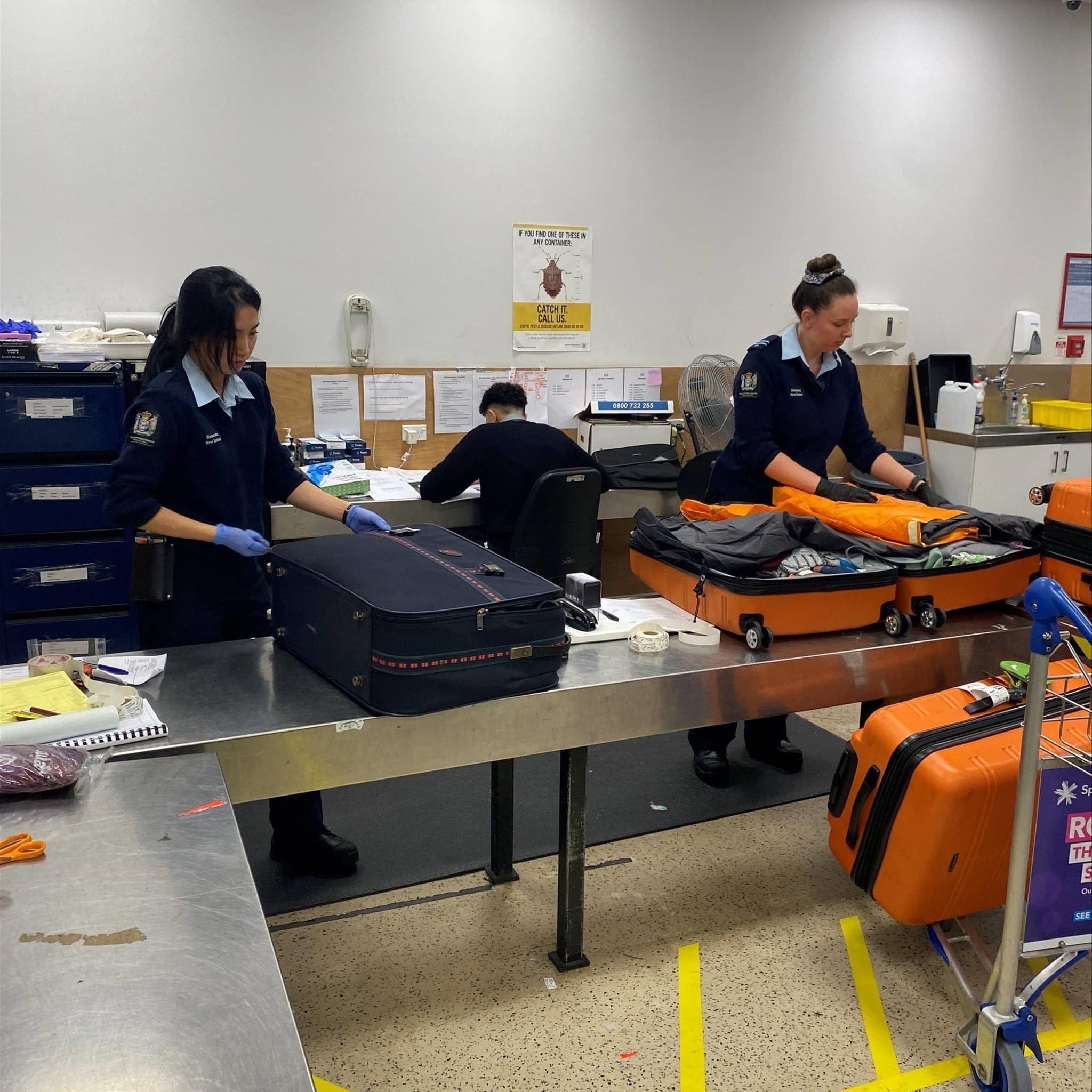Seen something unusual? MAKE A REPORT
Seen something unusual? MAKE A REPORT

It’s been a busy summer so far for biosecurity officers protecting New Zealand’s borders from unwanted pests and diseases.
Biosecurity officers screened over half a million arriving passengers in December. With borders reopening, the increase in passenger traffic has been matched with a rise in infringement notices for travellers who fail to declare items that pose biosecurity risk, including food, plant products and used equipment.
Officers issued 511 infringement notices in December, compared with 467 issued in November. Fresh produce was the most commonly seized undeclared item in December (420). Used equipment, such as hiking boots and camping gear, was the next highest (83), followed by meat products (58).
These items could contain animal or plants diseases, or destructive hitchhiker pests such as fruit fly or Brown Marmorated Stink Bug.
Some of the more unusual airport seizures included an onion that was sprouting in a passenger’s handbag and a dead rat detected in a boot inside baggage.
Do you know anyone returning from overseas or visiting New Zealand? Everyone in the kiwifruit industry or coming to New Zealand to work on an orchard, has a responsibility to manage biosecurity risks when travelling. KVH has developed a best practice poster to help reduce biosecurity risk after visiting or working on an offshore orchard or farm; and to explain what people can expect at border control when arriving in New Zealand.
Image: Ministry for Primary Industries staff inspecting luggage at Auckland Airport.

KVH investigates reports of unusual symptoms to identify and manage any biosecurity risks.
The KVH portal is now the Zespri Weather & Disease Portal. Access all the weather tools you're familiar with.
